
Ali Sabieh: The Gateway to Djibouti's Mystical Deserts
Ali Sabieh, a vibrant town nestled in the southern part of Djibouti, offers a unique blend of natural beauty and cultural richness. Known for its striking landscapes and warm, welcoming locals, Ali Sabieh is a hidden gem waiting to be explored by intrepid travelers. The town is surrounded by breathtaking deserts and majestic mountains, making it an ideal destination for nature enthusiasts and adventure seekers alike. One of the highlights of Ali Sabieh is the Grand Bara Desert, a vast expanse of white clay and sand that creates a surreal, almost lunar landscape. This desert is perfect for activities such as sandboarding, dune bashing, and even camel trekking. The nearby Day Forest National Park is another must-visit, home to a variety of wildlife and offering stunning hiking trails through lush, green forests. In addition to its natural attractions, Ali Sabieh boasts a rich cultural heritage. The town is home to several traditional markets where you can immerse yourself in the local way of life and shop for unique handicrafts. The vibrant street life, with its colorful stalls and friendly vendors, provides a fascinating glimpse into the daily lives of the local people. Don't miss the chance to try some authentic Djiboutian cuisine at one of the town's many eateries, where you can savor dishes like skoudehkaris (a spiced meat stew) and fresh seafood from the nearby Gulf of Aden.
Local tips in Ali Sabieh
- Visit early in the morning or late in the afternoon to avoid the midday heat.
- Hire a local guide to explore the Grand Bara Desert safely and learn about its unique features.
- Carry plenty of water and sun protection when heading out for outdoor activities.
- Try the local cuisine at the town's markets and eateries for an authentic taste of Djibouti.
- Respect local customs and traditions, especially when visiting traditional markets.
Ali Sabieh: The Gateway to Djibouti's Mystical Deserts
Ali Sabieh, a vibrant town nestled in the southern part of Djibouti, offers a unique blend of natural beauty and cultural richness. Known for its striking landscapes and warm, welcoming locals, Ali Sabieh is a hidden gem waiting to be explored by intrepid travelers. The town is surrounded by breathtaking deserts and majestic mountains, making it an ideal destination for nature enthusiasts and adventure seekers alike. One of the highlights of Ali Sabieh is the Grand Bara Desert, a vast expanse of white clay and sand that creates a surreal, almost lunar landscape. This desert is perfect for activities such as sandboarding, dune bashing, and even camel trekking. The nearby Day Forest National Park is another must-visit, home to a variety of wildlife and offering stunning hiking trails through lush, green forests. In addition to its natural attractions, Ali Sabieh boasts a rich cultural heritage. The town is home to several traditional markets where you can immerse yourself in the local way of life and shop for unique handicrafts. The vibrant street life, with its colorful stalls and friendly vendors, provides a fascinating glimpse into the daily lives of the local people. Don't miss the chance to try some authentic Djiboutian cuisine at one of the town's many eateries, where you can savor dishes like skoudehkaris (a spiced meat stew) and fresh seafood from the nearby Gulf of Aden.
When is the best time to go to Ali Sabieh?
Iconic landmarks you can’t miss
Mosquée Al-Hamoudi
Discover the breathtaking Mosquée Al-Hamoudi in Djibouti, a stunning mosque and cultural landmark showcasing Islamic architecture and community spirit.
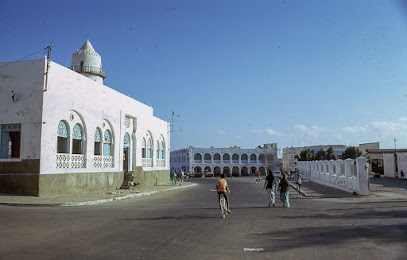
The People's Palace
Discover Djibouti's vibrant history and cultural heart at The People's Palace, a landmark monument commemorating the nation's freedom and offering insights into its rich heritage.
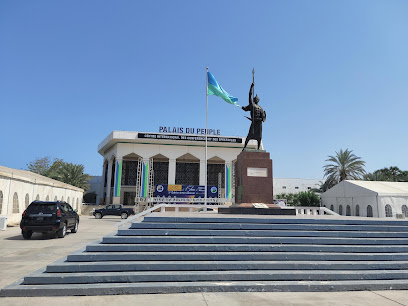
Singh's Restaurant
Experience authentic Indian cuisine in Djibouti at Singh's Restaurant, where flavorful dishes, a warm ambiance, and exceptional service create a memorable dining experience.
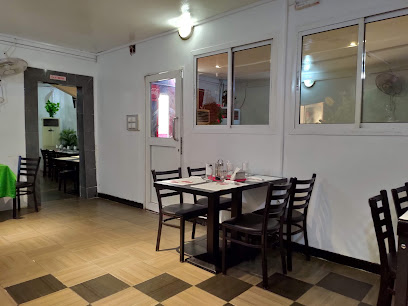
Day Forest National Park
Discover Djibouti's hidden gem: Day Forest National Park, a lush mountain oasis teeming with unique wildlife and breathtaking scenery, offering a refreshing escape from the arid landscape.
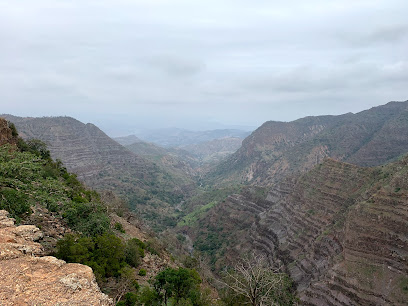
DECAN Refuge
Discover the DECAN Refuge in Djibouti, a nature preserve rich in wildlife and scenic beauty, perfect for eco-tourism and outdoor adventures.
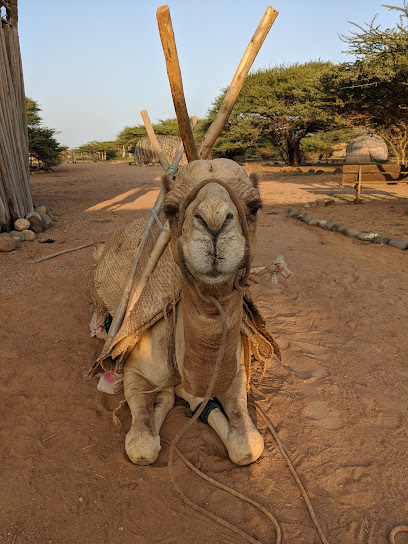
Hotel Ali Sabieh
Discover comfort and local charm at Hotel Ali Sabieh, your ideal base for exploring the vibrant culture and stunning landscapes of Djibouti.
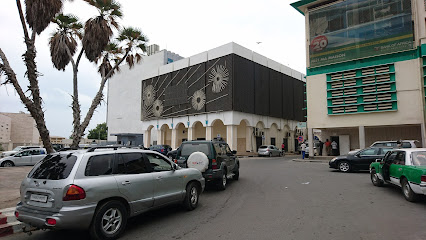
Jardin Public
Experience the lush greenery and serene atmosphere of Jardin Public, a tranquil park in Djibouti perfect for relaxation and community gatherings.
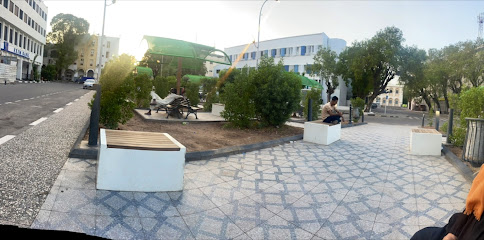
Ali Sabieh Mountain
Discover the majestic Ali Sabieh Mountain in Djibouti: Hike through stunning landscapes, immerse yourself in local culture, and witness breathtaking panoramic views from its peak.
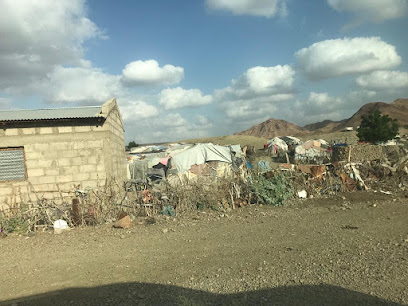
Hospital Dr. Absieh D'ali-Sabieh Al Qubaisi
Explore healthcare excellence at Hospital Dr. Absieh D'ali-Sabieh Al Qubaisi, a symbol of community wellness in Ali Sabieh, Djibouti.

علي بابا - Ali Baba
Discover Djibouti's past at Ali Baba, an antique store on Rue de Bender offering a diverse collection of historical relics, traditional textiles, and handcrafted jewelry.
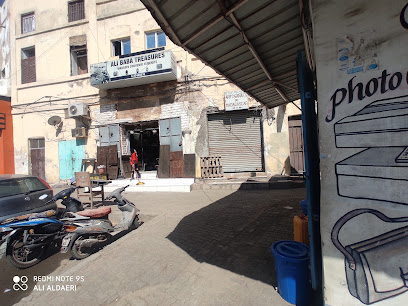
Buurta Calanka — Montagne de l'Emblème
Discover the historical and natural beauty of Buurta Calanka in Djibouti, offering panoramic views and a glimpse into the region's rich cultural heritage, a symbol of resilience.
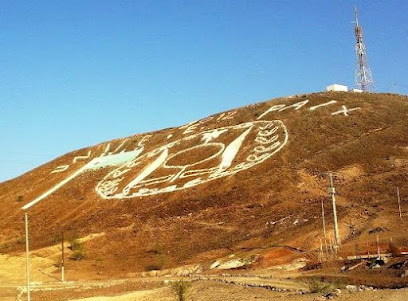
Place mahmoud harbi
Experience the vibrant heart of Djibouti City at Place Mahmoud Harbi, a bustling hub of commerce, culture, and transportation, offering an authentic glimpse into local life.

Handoga
Experience the rich history of Handoga, a captivating historical landmark in Dikhil, Djibouti, revealing the cultural heritage of the region.
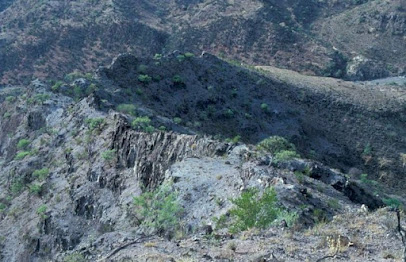
Unmissable attractions to see
Cheick Farah Matan
Explore the captivating beauty and rich culture of Cheick Farah Matan, a must-see tourist attraction in Dewele, Ethiopia.
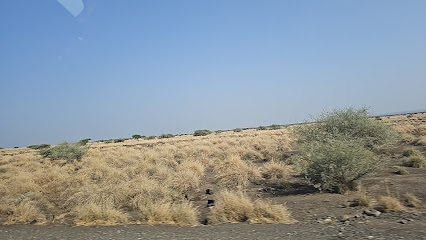
Ahmed nasser
Explore the Ahmed Nasser Museum in Djibouti for an enriching journey through the region's fascinating history and diverse cultural heritage.
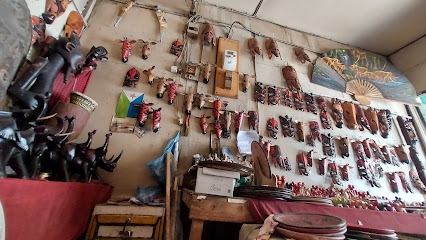
Ali Sabieh Mountain
Discover the breathtaking beauty of Ali Sabieh Mountain, a natural wonder in Djibouti that offers stunning views and rich biodiversity.
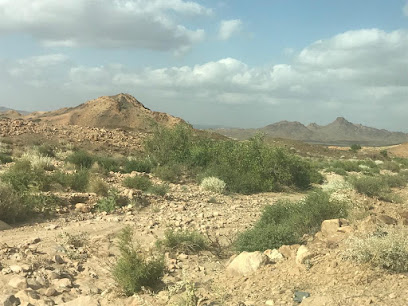
Essential places to dine
Melting Pot
Experience the culinary delights of Melting Pot in Djibouti – where global flavors meet local charm in an unforgettable dining experience.
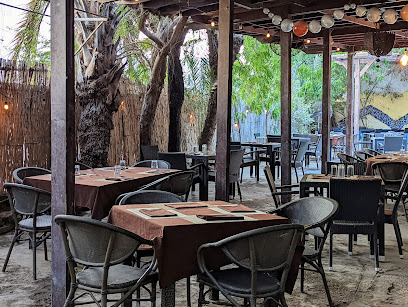
Pizzaiolo Haramous
Experience the taste of Italy at Pizzaiolo Haramous, where every dish tells a story of tradition and flavor.
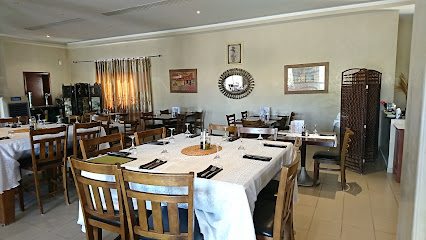
Signatures Restaurant Djibouti
Discover the authentic taste of India at Signatures Restaurant Djibouti – where every meal is a flavorful journey through tradition.
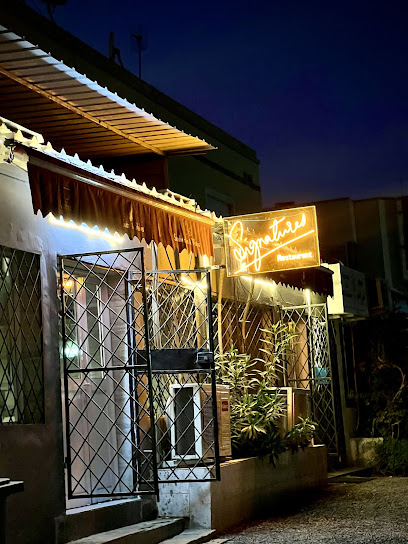
Moonlight Restaurant
Discover Moonlight Restaurant in Djibouti: A charming dining spot offering exquisite local flavors and international delights.
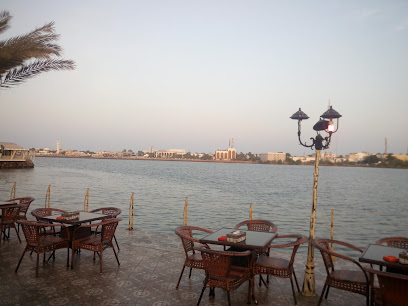
Café de la Gare
Experience authentic French cuisine at Café de la Gare in Djibouti; where delightful flavors meet warm hospitality.
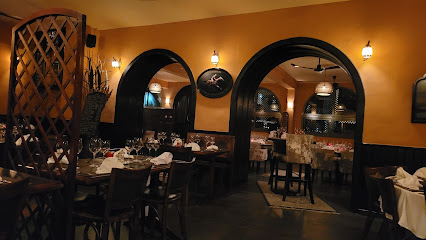
Restaurant La Mer Rouge
Experience a delightful blend of seafood and international cuisine at Restaurant La Mer Rouge in Djibouti – where every meal is an unforgettable journey.
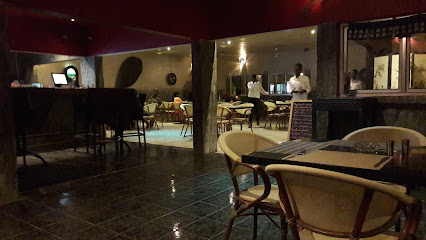
La Pergola
Experience the vibrant flavors of West Africa at La Pergola in Djibouti – where every meal tells a story.
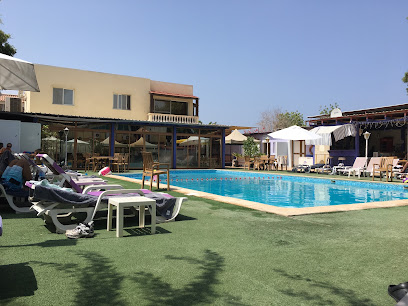
Singh's Restaurant
Experience the rich flavors of India at Singh's Restaurant in Djibouti – where every meal is a celebration of taste.
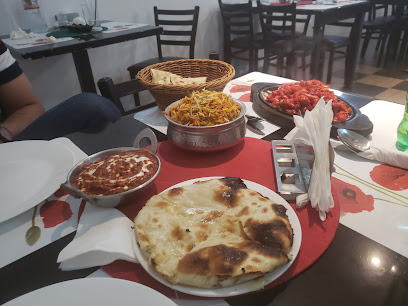
Janateyn Yemeni restaurant
Discover authentic Yemeni cuisine in Djibouti at Janateyn Yemeni Restaurant – where every dish tells a story.
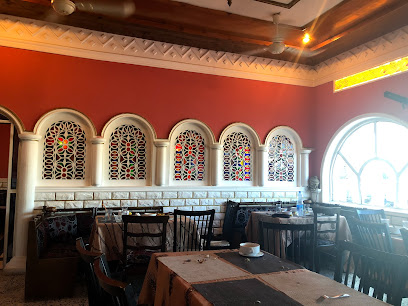
Saba Restaurant
Savor authentic Yemeni flavors at Saba Restaurant in Djibouti – where every dish tells a story.
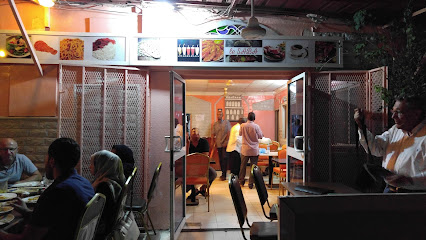
Le Santal
Indulge in authentic Indian flavors at Le Santal, Djibouti's premier destination for culinary excellence and vibrant dining experiences.
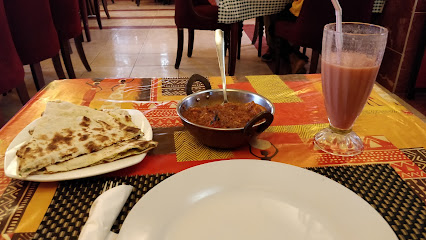
بن ماضي المندي
Discover the essence of Yemenite cuisine at بن ماضي المندي in Djibouti, where every dish tells a story of tradition and flavor.
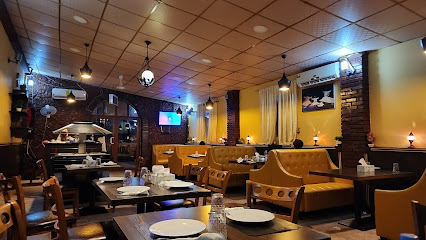
Restaurant NUMBER 1
Experience the best of Djiboutian cuisine at Restaurant NUMBER 1—where tradition meets flavor in a vibrant setting.
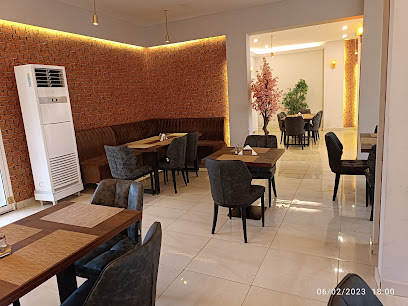
Restaurant Le Longchamp مطبخ بن ماضي
Discover the rich flavors of Djiboutian cuisine at Restaurant Le Longchamp – where every meal is a celebration of taste.
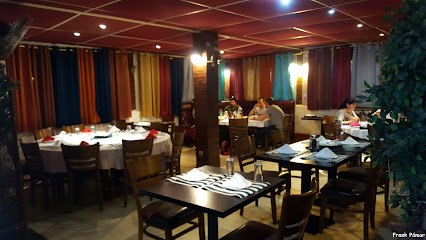
Jules Verne
Discover exquisite dining at Jules Verne - where local flavors meet international cuisine in Djibouti's vibrant Quartier Aviation.
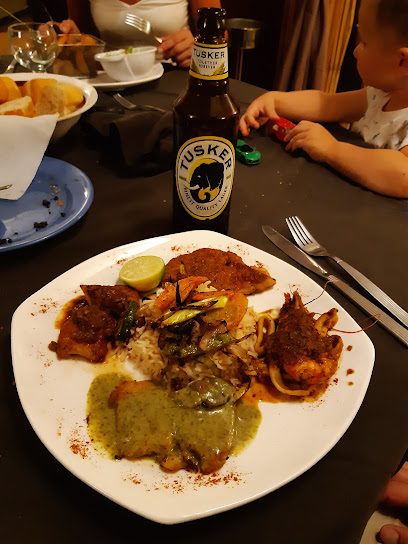
Markets, malls and hidden boutiques
Boutique Ibrahim Moussa
Explore the charm of Boutique Ibrahim Moussa in Dikhil, showcasing authentic Djiboutian crafts and unique souvenirs for every traveler.
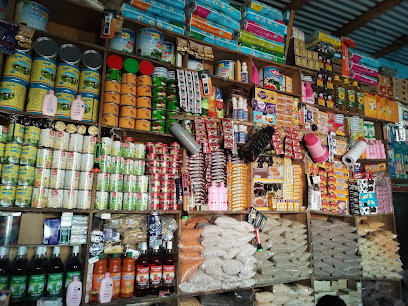
M-Towsan
Explore M-Towsan in Ali Sabieh for a unique shopping experience filled with local crafts, friendly service, and unforgettable souvenirs.

علي بابا - Ali Baba
Explore Ali Baba Antique Store in Djibouti for unique antiques and cultural treasures that capture the essence of the region's rich history.
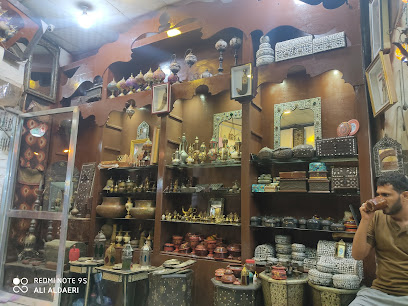
Ali Baba Treasures
Explore Ali Baba Treasures in Djibouti - your go-to destination for unique gifts and local crafts that celebrate the essence of the region.
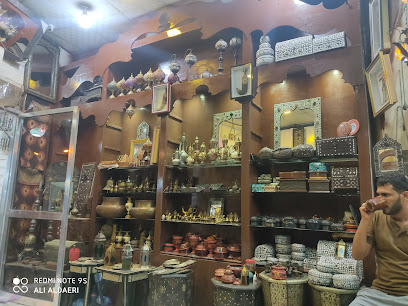
Boutique kadira
Discover unique handcrafted gifts at Boutique Kadira in Arta, where local artistry meets cultural heritage.

Boutique Nasib
Explore the vibrant culture of Djibouti at Boutique Nasib, where unique crafts and local artistry come together in a charming shopping experience.

Coiffure OBOLEY
Experience expert grooming at Coiffure OBOLEY in Ali Sabieh, where style meets tradition in a welcoming atmosphere.
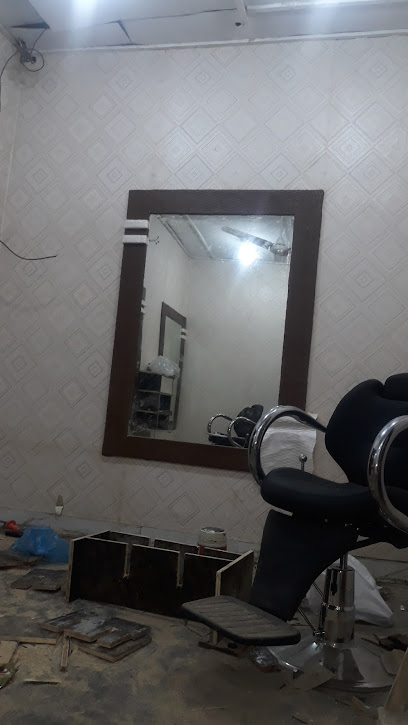
Magasin chez choli
Explore Magasin chez choli in Ali Sabieh for authentic Djiboutian crafts and a unique shopping experience that captures the culture of Djibouti.

The one shopping
Explore The One Shopping in Djibouti for unique souvenirs and local crafts that embody the spirit of this vibrant region.

Épicerie lalayeh
Discover local flavors and essentials at Épicerie Lalayeh, your go-to convenience store in the heart of Ali Sabieh.
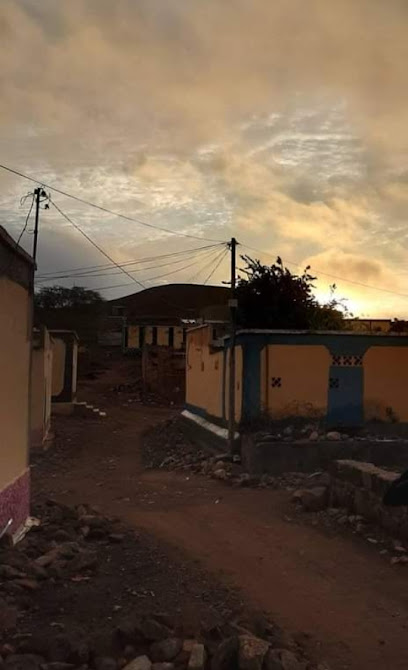
Kartee halgan doukan djilal
Experience the authentic local flavors at Kartee Halgan Doukan Djilal, a must-visit grocery store in Ali Sabieh, Djibouti.
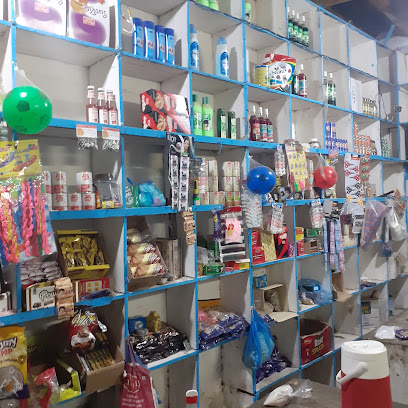
Bunna house
Discover the essence of Ali Sabieh at Bunna House, a coffee shop where rich flavors and local culture come together for an unforgettable experience.

Cite brograis
Discover the essence of Ali Sabieh at Café Bliss, a charming coffee shop offering a delightful selection of brews and a warm atmosphere.

Boutique Moderne
Explore unique fashion at Boutique Moderne, a stylish clothing store in Djibouti offering a mix of local craftsmanship and contemporary designs.
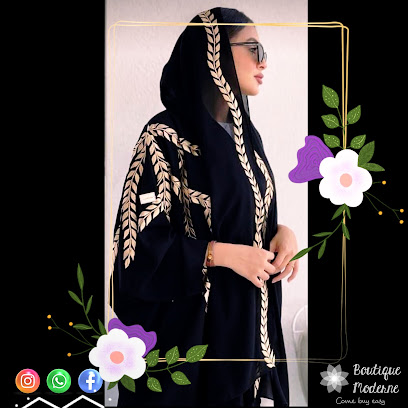
Sacdiya sharaf
Discover authentic Djiboutian crafts at Sacdiya Sharaf, the perfect gift shop for unique souvenirs and local artistry.

Essential bars & hidden hideouts
11 Degrees North
Discover the heart of Djibouti's nightlife at 11 Degrees North, a vibrant pub offering local drinks, delicious snacks, and live entertainment.
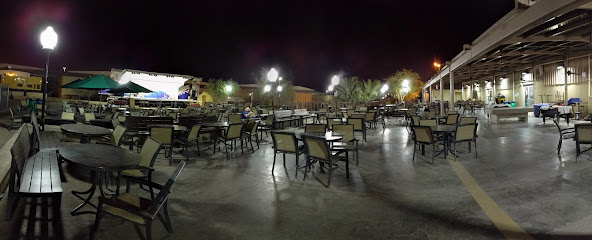
Timeout Restaurant and Sport Bar
Discover the vibrant flavors of Djibouti at Timeout Restaurant and Sport Bar, where great food meets a lively atmosphere.
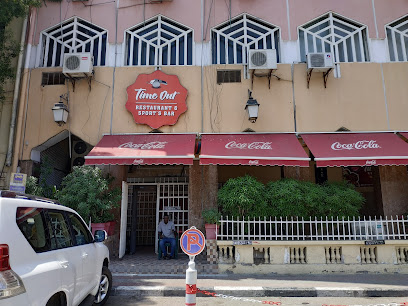
Cantina
Immerse yourself in the vibrant local culture at Cantina, a lively bar in Djibouti known for its eclectic drinks and energetic atmosphere.

Safari Club Kempinski
Discover the elegance of Safari Club Kempinski in Djibouti, where luxury meets vibrant nightlife in a stunning bar experience.

Crystal Lounge Sheraton Djibouti
Discover luxury dining at Crystal Lounge Sheraton Djibouti, where exquisite flavors meet stunning views in an inviting ambiance.
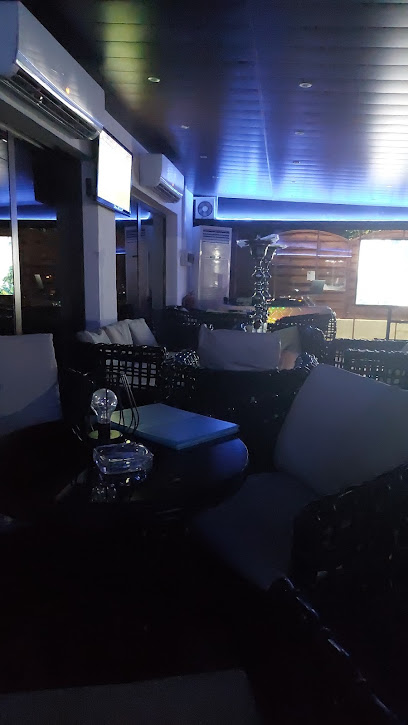
Mystic lounge & restaurant
Discover the flavors of Djibouti at Mystic Lounge & Restaurant, where local cuisine meets international flair in a welcoming atmosphere.
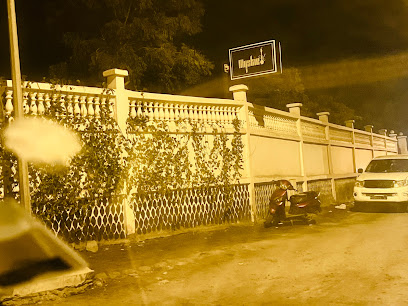
Cheer Kadra
Experience the authentic taste of Djibouti at Cheer Kadra, a charming steamed bun shop in Ali Sabieh, perfect for food lovers and cultural explorers.

Ali Sabieh Mountain
Explore the breathtaking heights of Ali Sabieh Mountain, a hidden gem in Djibouti perfect for adventure seekers and nature lovers alike.
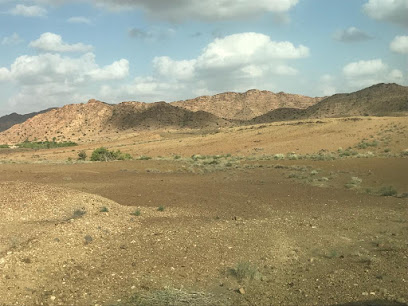
Pub Palmier Zink
Discover the vibrant nightlife of Djibouti at Pub Palmier Zink, where locals and tourists come together for drinks and conversation.
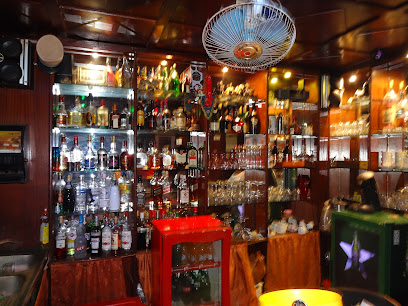
The Goat Locker
Experience the vibrant nightlife at The Goat Locker, a must-visit bar in Djibouti known for its friendly atmosphere and refreshing drinks.

B B S Lounge (Bar By Sing's)
Discover the vibrant atmosphere and stunning views at B B S Lounge, the rooftop bar that captures the essence of Djibouti's nightlife.

Scotch djibouti
Discover the lively nightlife at Scotch Djibouti, where great cocktails and an energetic atmosphere await you in the heart of the city.
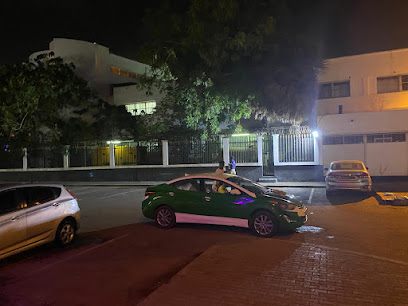
TE'AMO,VBawadi Mall
Discover the lively TE'AMO bar at VBawadi Mall, Djibouti – a perfect mix of local flavors and vibrant nightlife.
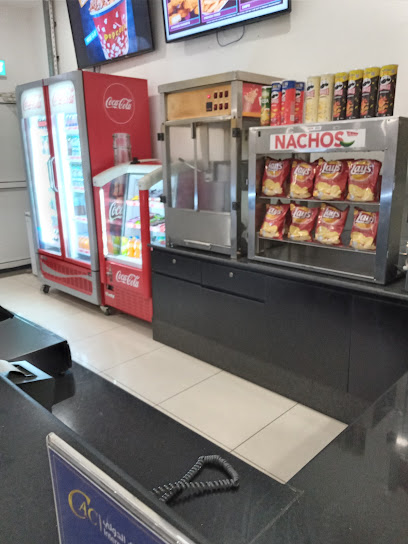
Bar Cafetería Neñoland
Experience the local charm at Bar Cafetería Neñoland in Ali Sabieh, where refreshing drinks and a cozy atmosphere await every visitor.

Local Phrases
-
- HelloSelam
[sə-lam] - GoodbyeSalaama
[sa-la-ma] - YesEey
[eɪ] - NoMaya
[ma-ya] - Please/You're welcomeMarhaba
[mar-ha-ba] - Thank youMisaanka
[mi-saŋ-ka] - Excuse me/SorryFadlan
[fad-lan] - How are you?Sideed tahay?
[si-deed ta-haɪ] - Fine. And you?Waa gud. Idinku waa?
[wa gʊd. i-din-ku wa] - Do you speak English?Ma kula hadlayaa Ingiriis?
[ma ku-la had-la-ya in-gi-riis] - I don't understandMa fahmin
[ma fa-min]
- HelloSelam
-
- I'd like to see the menu, pleaseWaan arki karaa menuka, fadlan
[waan ar-ki ka-ra menu-ka, fad-lan] - I don't eat meatAniga ma cunin hilib
[a-ni-ga ma ʧu-nin hi-lib] - Cheers!Cayaar
[ʧa-yaar] - I would like to pay, pleaseWaan ka baqayaa, fadlan
[waan ka ba-ka-ya, fad-lan]
- I'd like to see the menu, pleaseWaan arki karaa menuka, fadlan
-
- Help!Caaw
[ʧaaw] - Go away!Tag
[tag] - Call the Police!Wac poliska
[wat pol-is-ka] - Call a doctor!Waa dhakhtar
[wa da-ɪk-tar] - I'm lostAniga waxaan helay
[a-ni-ga wa-ʧaan he-lay] - I'm illAniga maraad
[a-ni-ga ma-raad]
- Help!Caaw
-
- I'd like to buy...Waan iibgeynaa...
[waan iɪb-gey-na] - I'm just lookingWaan arkayaa
[waan ar-ka-ya] - How much is it?Dadkaa ha iska leeyahay?
[dad-ka ha is-ka lee-ya-haɪ] - That's too expensiveWaa qiimaha ka weyn
[wa qi-ma-ha ka weyn] - Can you lower the price?Ha iga saar qiimaha?
[ha i-ga saar qi-ma-ha]
- I'd like to buy...Waan iibgeynaa...
-
- What time is it?Waa saacadaha?
[wa sa-ca-da-ha] - It's one o'clockWaa saacad ku leh
[wa sa-caad ku leh] - Half past (10)Dhalaad ah (10)
[ʤa-laad ah (10)] - MorningSubax wanaagsan
[su-baah wa-naag-san] - AfternoonGalab wanaagsan
[ga-lab wa-naag-san] - EveningCadow wanaagsan
[ʧa-dow wa-naag-san] - YesterdayShalay
[sha-lay] - TodayMaanta
[ma-an-ta] - TomorrowBerri
[ber-ri] - 1Kow
[kow] - 2Laba
[la-ba] - 3Sideed
[si-deed] - 4Afar
[a-far] - 5Shan
[ʃan] - 6Lix
[liʧ] - 7Toddobaad
[to-do-baad] - 8Siddeed
[si-ddeed] - 9Sagaal
[sa-gaal] - 10Toban
[to-ban]
- What time is it?Waa saacadaha?
-
- Where's a/the...?Way ka ahaan...?
[waɪ ka a-haan] - What's the address?Cinwaanka maxaa?
[ʧin-waan-ka ma-ha] - Can you show me (on the map)?Ma iga muuji kartada?
[ma ɪ-ga muu-ji kar-ta-da] - When's the next (bus)?Marka u dambeeya (bas)?
[mar-ka u dam-be-ya (bas)] - A ticket (to ....)Baabuur (ila...)
[baa-buur (i-la)]
- Where's a/the...?Way ka ahaan...?
History of Ali Sabieh
-
Ali Sabieh, located in the southern part of Djibouti, has a rich history dating back to ancient times. The area has been inhabited by various nomadic tribes, primarily the Issa Somali, for centuries. These early settlers utilized the region's strategic location near trade routes, contributing to its growth and development as a key trading post in the Horn of Africa.
-
In the late 19th century, the French established a colonial presence in Djibouti, including Ali Sabieh. The town became part of French Somaliland, and the construction of the Ethio-Djibouti Railway in the early 20th century further facilitated its growth. Ali Sabieh's strategic location along the railway line made it an important hub for transportation and commerce, linking Djibouti to Ethiopia and the broader region.
-
Djibouti gained independence from France on June 27, 1977. Following independence, Ali Sabieh continued to develop as a key town in the country. The government invested in infrastructure and public services, enhancing the town's connectivity and living standards. Today, Ali Sabieh is known for its vibrant markets, cultural heritage, and as a gateway to the scenic landscapes of southern Djibouti.
-
Ali Sabieh is a melting pot of cultures, with a rich tapestry of traditions and practices. The Issa Somali community, which forms the majority of the population, has a distinct cultural heritage that is evident in the town's music, dance, and festivals. The town's cultural landscape is also influenced by other ethnic groups, creating a diverse and dynamic social fabric.
-
The region around Ali Sabieh is renowned for its natural beauty, including the scenic Goda Mountains and the stunning Grand Bara Desert. These natural attractions offer opportunities for eco-tourism, with activities such as hiking, wildlife viewing, and exploring the unique desert landscapes. Ali Sabieh serves as a base for visitors looking to experience the natural wonders of southern Djibouti.
Ali Sabieh Essentials
-
Ali Sabieh is located in the southeastern part of Djibouti. The nearest international airport is Djibouti-Ambouli International Airport in Djibouti City, approximately 100 kilometers away. From Djibouti City, you can take a taxi or a shared minibus to Ali Sabieh. The journey typically takes around 1.5 to 2 hours by road. Alternatively, you can take a train from Djibouti City to Ali Sabieh, which offers a convenient and scenic route through the Djiboutian landscape.
-
Ali Sabieh is a small town, and many of its attractions are within walking distance. For longer trips, local taxis are readily available and relatively inexpensive. Shared minibuses operate within the town and connect to nearby villages. Renting a car can also be a convenient option for exploring the surrounding areas at your own pace. Be sure to negotiate taxi fares in advance, as they do not operate on meters.
-
The official currency in Djibouti is the Djiboutian Franc (DJF). Credit cards are accepted in some hotels, restaurants, and shops, but it is advisable to carry cash, especially in smaller establishments and rural areas. ATMs are available in Ali Sabieh, but it is wise to withdraw sufficient cash in Djibouti City before traveling to ensure you have enough funds.
-
Ali Sabieh is generally a safe destination for tourists. However, it is advisable to take standard precautions. Avoid walking alone at night in unfamiliar areas and keep an eye on your belongings in crowded places. While there are no specific high-crime areas targeting tourists, it is always best to stay vigilant and aware of your surroundings.
-
In case of emergency, dial 17 for police assistance and 18 for medical emergencies. The local police station and medical facilities are available in Ali Sabieh. It is recommended to have travel insurance that covers medical emergencies. For minor health issues, there are pharmacies in the town where you can purchase over-the-counter medications.
-
Fashion: Do dress modestly, especially when visiting religious sites. Avoid wearing revealing clothing. Religion: Do respect local customs and traditions. Always cover your head when entering mosques. Public Transport: Do be respectful and give up your seat to elderly passengers. Don't eat or drink on public transport. Greetings: Do greet people with a handshake. A slight bow of the head is also a sign of respect. Eating & Drinking: Do try local delicacies and accept food offerings graciously. Don't refuse hospitality, as it is considered impolite.
-
To experience Ali Sabieh like a local, visit the local markets where you can buy fresh produce and traditional Djiboutian goods. Engage with locals, as they are often friendly and willing to share stories about the town's history and culture. Don't miss visiting the nearby Ali Sabieh Mountain, which offers stunning views and great hiking opportunities. For a unique experience, take part in a traditional coffee ceremony, a cherished cultural practice in Djibouti.
Trending Landmark in Ali Sabieh
Nearby Cities to Ali Sabieh
-
Things To Do in Dikhil
-
Things To Do in Arta
-
Things To Do in Djibouti City
-
Things To Do in Loyada
-
Things To Do in Tadjoura
-
Things To Do in Obock
-
Things To Do in Dire Dawa
-
Things To Do in Harar
-
Things To Do in Hargeisa
-
Things To Do in Aden
-
Things To Do in Ibb
-
Things To Do in Lalibela
-
Things To Do in Dhamar
-
Things To Do in Mekele
-
Things To Do in Addis Ababa








